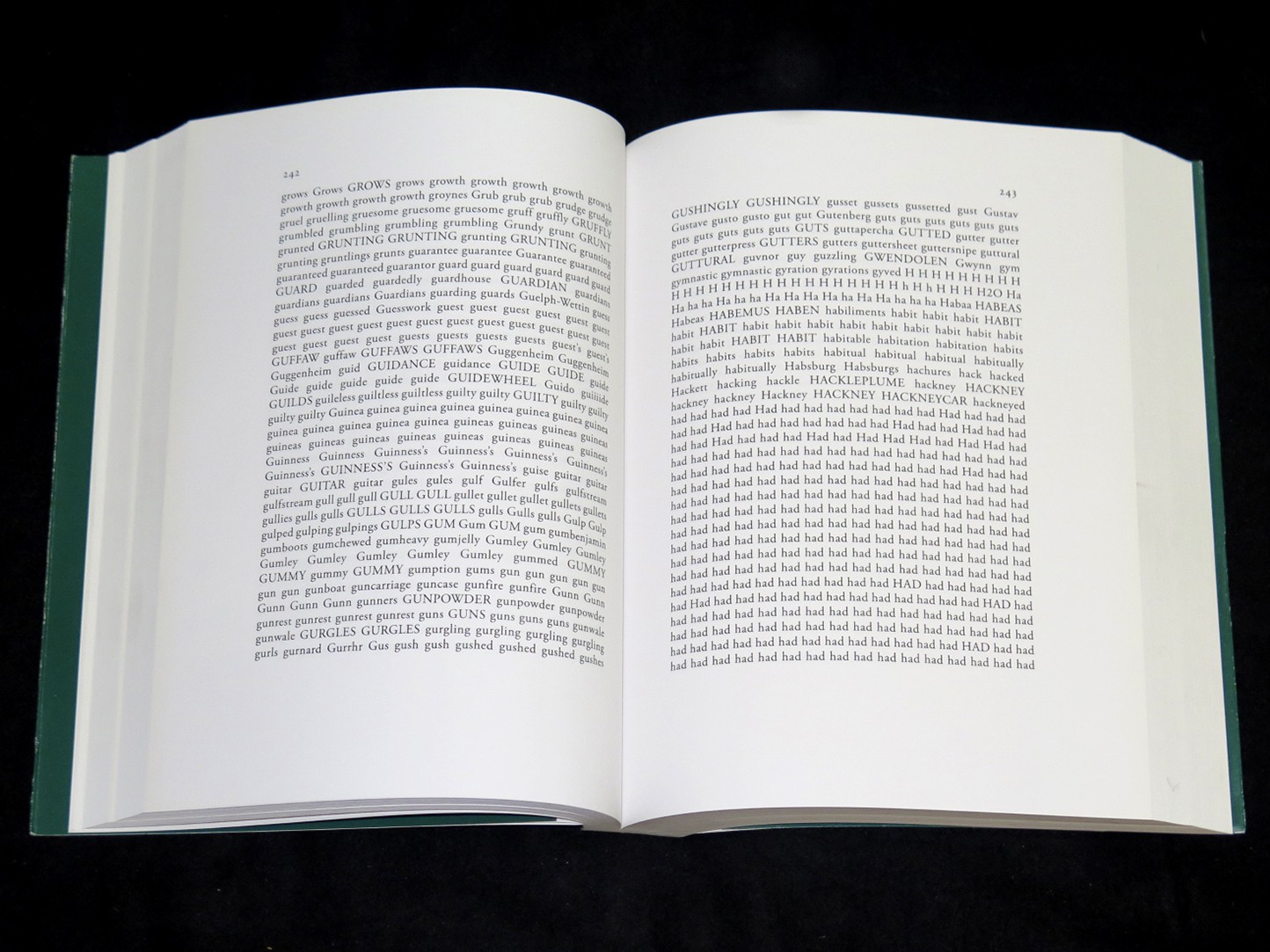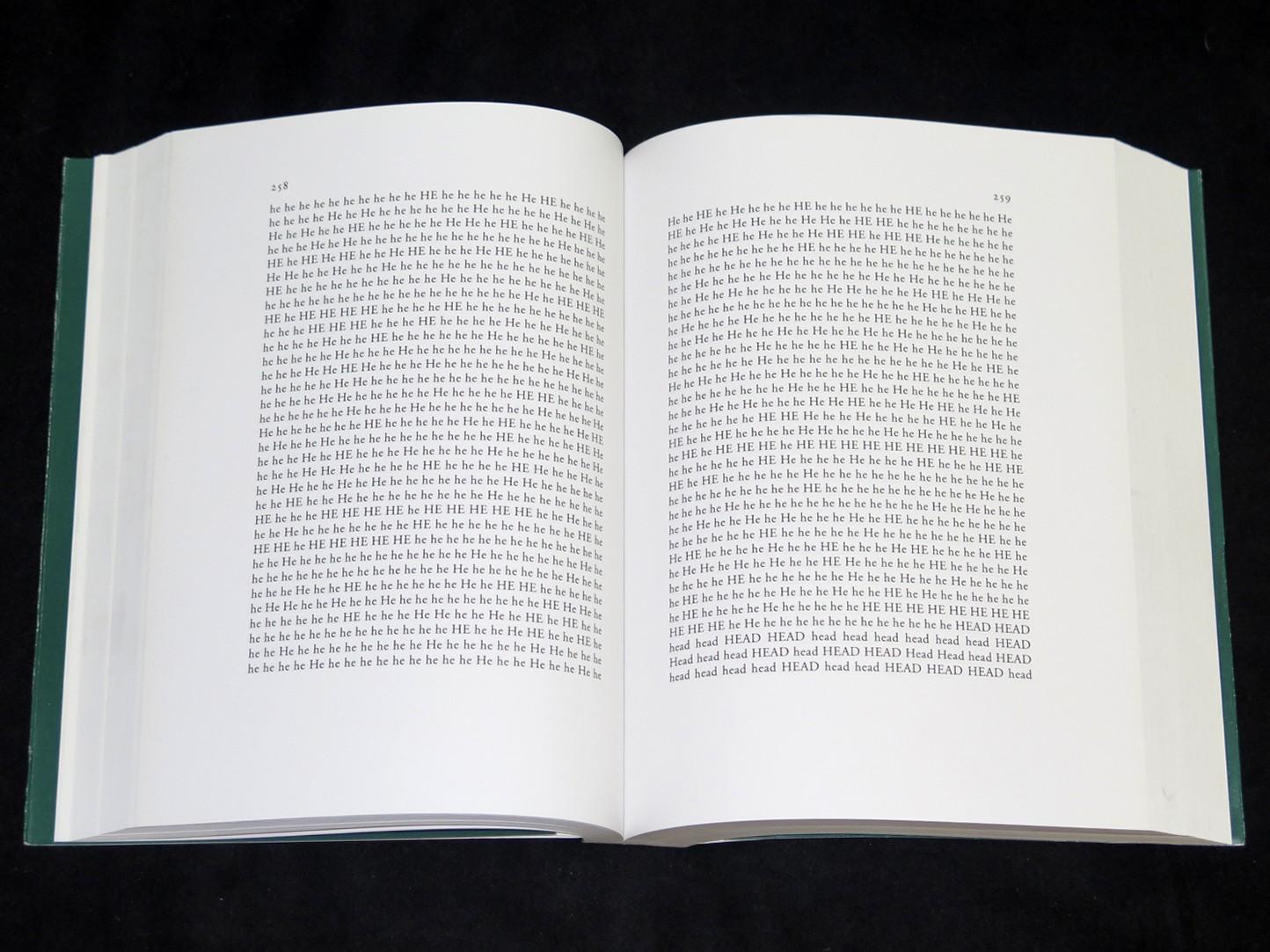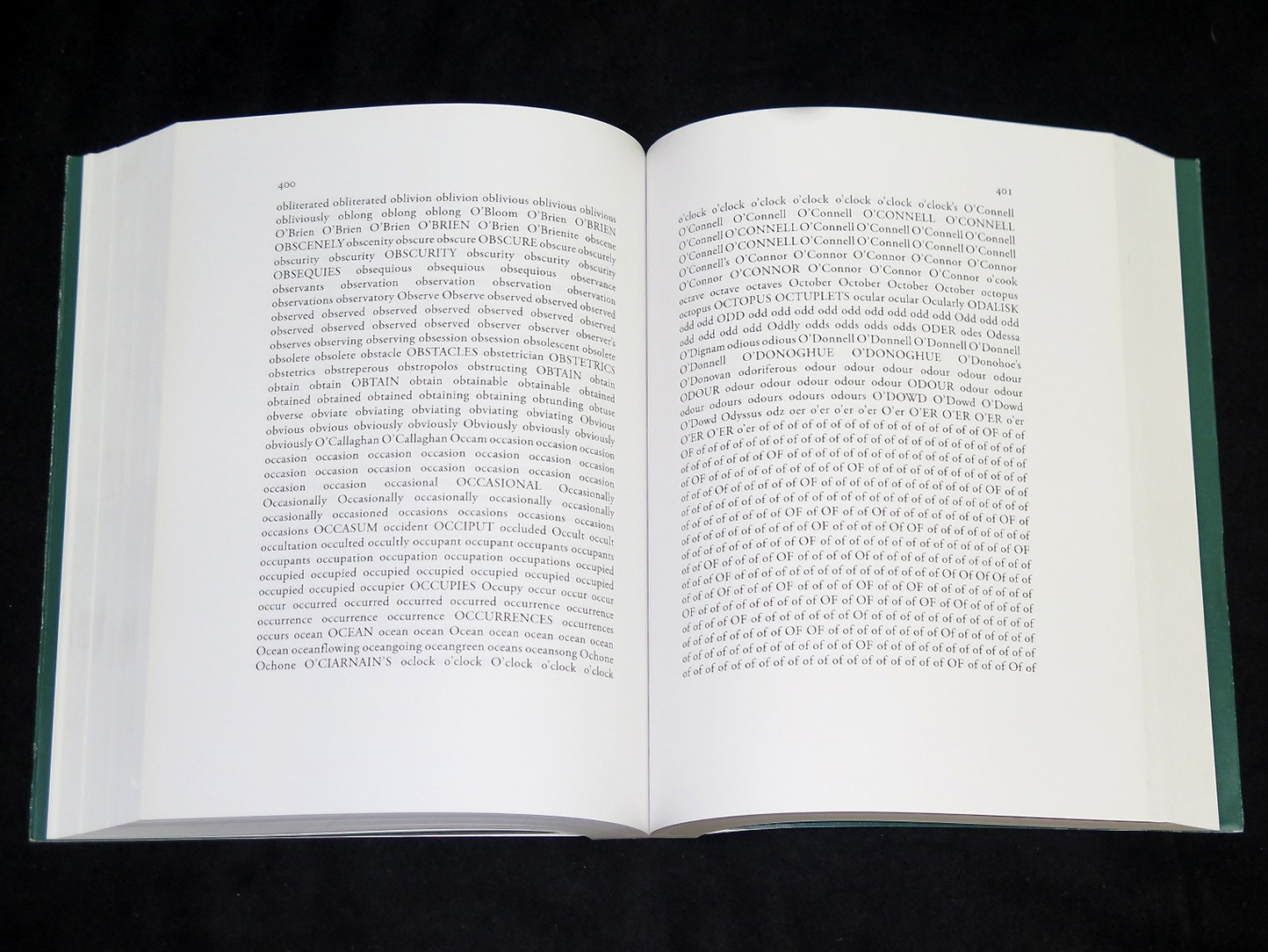You are using an out of date browser. It may not display this or other websites correctly.
You should upgrade or use an alternative browser.
You should upgrade or use an alternative browser.
Ulysses (1922)
- Thread starter version
- Start date
Benny Bunter
Well-known member
You can read wasteland in about half an hour and it's really memorable. Ulysses takes months of slog and its not even worth it, you'll just forget it all, waste of time
Clinamenic
Binary & Tweed
Corpsey clearly occupies a higher wavelength than you philistines.
Clinamenic
Binary & Tweed
Ulysses was more forgivable than Gravity's Rainbow, in my opinion.
Corpsey
bandz ahoy
Feels good. Satisfying. And it isn't overrated. And it ends brilliantly.
I already feel like I should reread it though. Burgess recommends reading bits of it instead of going from cover to cover, at least after you've gone cover to cover once. Nabokov's line about rereading applies here, I think. If I started reading it again now I think I'd be making all sorts of connections between the earliest and latest episodes.
Molly's monologue was one of the only episodes I read without annotations, I put the audiobook on which helped a lot, propelled me through it in about two and a half hours. Was a magical experience.
It's also probably the best episode in the whole book and one of the best things I've ever read. It wouldn't make sense without what comes before it, which is part of its brilliance because it ties everything together in certain ways. I love how her memories of Gibraltar merge with memories of Howth to evoke Ithaca and the Odyssey at the close. It reminded me most of all of "The Dead". Her memories of a dead lover, the sense of tenderness and transcendence at the end.
I reckon the library episode, the maternity ward and the night town scene are the bits that defeat most readers. I had to drag myself through them, although all three are full of wonderful things.
My favourite episodes: Wandering Rocks, Sirens, Nausicaa, Ithaca, Penelope
I already feel like I should reread it though. Burgess recommends reading bits of it instead of going from cover to cover, at least after you've gone cover to cover once. Nabokov's line about rereading applies here, I think. If I started reading it again now I think I'd be making all sorts of connections between the earliest and latest episodes.
Molly's monologue was one of the only episodes I read without annotations, I put the audiobook on which helped a lot, propelled me through it in about two and a half hours. Was a magical experience.
It's also probably the best episode in the whole book and one of the best things I've ever read. It wouldn't make sense without what comes before it, which is part of its brilliance because it ties everything together in certain ways. I love how her memories of Gibraltar merge with memories of Howth to evoke Ithaca and the Odyssey at the close. It reminded me most of all of "The Dead". Her memories of a dead lover, the sense of tenderness and transcendence at the end.
I reckon the library episode, the maternity ward and the night town scene are the bits that defeat most readers. I had to drag myself through them, although all three are full of wonderful things.
My favourite episodes: Wandering Rocks, Sirens, Nausicaa, Ithaca, Penelope
version
Well-known member
I already feel like I should reread it though. Burgess recommends reading bits of it instead of going from cover to cover, at least after you've gone cover to cover once. Nabokov's line about rereading applies here, I think. If I started reading it again now I think I'd be making all sorts of connections between the earliest and latest episodes.
I've gone back and reread Nestor and bits of Proteus since I finished it. It's nice to be able to move freely through it like that once you've done the whole thing.
I reckon the library episode, the maternity ward and the night town scene are the bits that defeat most readers. I had to drag myself through them, although all three are full of wonderful things.
I think Proteus too. The first two episodes are fairly straightforward then you get hit with Stephen on the beach doing his 'ineluctable modality of the visible' thing and Aristotle and it shifts up a gear or two and knocks some people back.
My favourites are the second and third (Nestor, Proteus) and the second to last (Ithaca). The one in the pub with The Citizen (Cyclops) and the Nighttown episode (Circe) were the ones I remember really slogging through at times.
Corpsey
bandz ahoy
Oh yeah true. I got through it with the help of annotations. I think Proteus is shorter than those later ones though? The length is what really kills you.I think Proteus too. The first two episodes are fairly straightforward then you get hit with Stephen on the beach doing his 'ineluctable modality of the visible' thing and Aristotle and it shifts up a gear or two and knocks some people back.
version
Well-known member
Cyclops is half great and half interminable. Every time it launches into a parody you grit your teeth.
Those lists...
Oh yeah true. I got through it with the help of annotations. I think Proteus is shorter than those later ones though? The length is what really kills you.
Yeah, it is. And Circe's basically a novella. The last four episodes take up about half the book.
Corpsey
bandz ahoy
Books to complement UlyssesI've a couple of Kenner's books on Joyce, but haven't picked them up yet. The one just called Ulysses and one called Joyce's Voices.
Richard Ellmann - Ulysses on the Liffey (and the autobiography)
Anthony Burgess - Here Comes Everybody
Hugh Kenner - Ulysses
Terence Killeen - Ulysses Unbound
Kit Mackintosh - Neon Screams
Popper's Ulysses is worth a look






Corpsey
bandz ahoy
What exchange of money took place between host and guest?
The former returned to the latter, without interest, a sum of money (£1-7-0), one pound seven shillings, advanced by the latter to the former.
What counterproposals were alternately advanced, accepted, modified, declined, restated in other terms, reaccepted, ratified, reconfirmed?
To inaugurate a prearranged course of Italian instruction, place the residence of the instructed. To inaugurate a course of vocal instruction, place the residence of the instructress. To inaugurate a series of static semistatic and peripatetic intellectual dialogues, places the residence of both speakers (if both speakers were resident in the same place), the Ship hotel and tavern, 6 Lower Abbey street (W. and E. Connery, proprietors), the National Library of Ireland, 10 Kildare street, the National Maternity Hospital, 29, 30 and 31 Holles street, a public garden, the vicinity of a place of worship, a conjunction of two or more public thoroughfares, the point of bisection of a right line drawn between their residences (if both speakers were resident in different places).
What rendered problematic for Bloom the realisation of these mutually selfexcluding propositions?
The irreparability of the past: once at a performance of Albert Hengler's circus in the Rotunda, Rutland square, Dublin, an intuitive particoloured clown in quest of paternity had penetrated from the ring to a place in the auditorium where Bloom, solitary, was publicly declared to an exhilarated audience that he (Bloom) was his (the clown's) papa. The imprevidibility of the future: once in the summer of 1898 he (Bloom) had marked a florin (2/-) with three notches on the milled edge and tendered it in payment of an account due to and received by J. and T. Davy, family grocers, 1 Charlemont Mall, Grand Canal, for circulation on the waters of civic finance, for possible, circuitous or direct, return.
Was the clown Bloom's son?
No.
Had Bloom's coin returned?
Never.
...
What did each do at the door of egress?
Bloom set the candlestick on the floor. Stephen put the hat on his head.
For what creature was the door of egress a door of ingress?
For a cat.
What spectacle confronted them when they, first the host, then the guest, emerged silently, doubly dark, from obscurity by a passage from the rere of the house into the penumbra of the garden?
The heaventree of stars hung with humid nightblue fruit.
With what meditations did Bloom accompany his demonstration to his companion of various constellations?
Meditations of evolution increasingly vaster: of the moon invisible in incipient lunation, approaching perigee: of the infinite lattiginous scintillating uncondensed milky way, discernible by daylight by an observer placed at the lower end of a cylindrical vertical shaft 5000 ft deep sunk from the surface towards the centre of the earth: of Sirius (alpha in Canis Maior) 10 lightyears (57,000,000,000,000 miles) distant and in volume 900 times the dimension of our planet: of Arcturus: of the precession of equinoxes: of Orion with belt and sextuple sun theta and nebula in which 100 of our solar systems could be contained: of moribund and of nascent new stars such as Nova in 1901: of our system plunging towards the constellation of Hercules: of the parallax or parallactic drift of socalled fixed stars, in reality evermoving wanderers from immeasurably remote eons to infinitely remote futures in comparison with which the years, threescore and ten, of allotted human life formed a parenthesis of infinitesimal brevity.
Were there obverse meditations of involution increasingly less vast?
Of the eons of geological periods recorded in the stratifications of the earth: of the myriad minute entomological organic existences concealed in cavities of the earth, beneath removable stones, in hives and mounds, of microbes, germs, bacteria, bacilli, spermatozoa: of the incalculable trillions of billions of millions of imperceptible molecules contained by cohesion of molecular affinity in a single pinhead: of the universe of human serum constellated with red and white bodies, themselves universes of void space constellated with other bodies, each, in continuity, its universe of divisible component bodies of which each was again divisible in divisions of redivisible component bodies, dividends and divisors ever diminishing without actual division till, if the progress were carried far enough, nought nowhere was never reached.
The former returned to the latter, without interest, a sum of money (£1-7-0), one pound seven shillings, advanced by the latter to the former.
What counterproposals were alternately advanced, accepted, modified, declined, restated in other terms, reaccepted, ratified, reconfirmed?
To inaugurate a prearranged course of Italian instruction, place the residence of the instructed. To inaugurate a course of vocal instruction, place the residence of the instructress. To inaugurate a series of static semistatic and peripatetic intellectual dialogues, places the residence of both speakers (if both speakers were resident in the same place), the Ship hotel and tavern, 6 Lower Abbey street (W. and E. Connery, proprietors), the National Library of Ireland, 10 Kildare street, the National Maternity Hospital, 29, 30 and 31 Holles street, a public garden, the vicinity of a place of worship, a conjunction of two or more public thoroughfares, the point of bisection of a right line drawn between their residences (if both speakers were resident in different places).
What rendered problematic for Bloom the realisation of these mutually selfexcluding propositions?
The irreparability of the past: once at a performance of Albert Hengler's circus in the Rotunda, Rutland square, Dublin, an intuitive particoloured clown in quest of paternity had penetrated from the ring to a place in the auditorium where Bloom, solitary, was publicly declared to an exhilarated audience that he (Bloom) was his (the clown's) papa. The imprevidibility of the future: once in the summer of 1898 he (Bloom) had marked a florin (2/-) with three notches on the milled edge and tendered it in payment of an account due to and received by J. and T. Davy, family grocers, 1 Charlemont Mall, Grand Canal, for circulation on the waters of civic finance, for possible, circuitous or direct, return.
Was the clown Bloom's son?
No.
Had Bloom's coin returned?
Never.
...
What did each do at the door of egress?
Bloom set the candlestick on the floor. Stephen put the hat on his head.
For what creature was the door of egress a door of ingress?
For a cat.
What spectacle confronted them when they, first the host, then the guest, emerged silently, doubly dark, from obscurity by a passage from the rere of the house into the penumbra of the garden?
The heaventree of stars hung with humid nightblue fruit.
With what meditations did Bloom accompany his demonstration to his companion of various constellations?
Meditations of evolution increasingly vaster: of the moon invisible in incipient lunation, approaching perigee: of the infinite lattiginous scintillating uncondensed milky way, discernible by daylight by an observer placed at the lower end of a cylindrical vertical shaft 5000 ft deep sunk from the surface towards the centre of the earth: of Sirius (alpha in Canis Maior) 10 lightyears (57,000,000,000,000 miles) distant and in volume 900 times the dimension of our planet: of Arcturus: of the precession of equinoxes: of Orion with belt and sextuple sun theta and nebula in which 100 of our solar systems could be contained: of moribund and of nascent new stars such as Nova in 1901: of our system plunging towards the constellation of Hercules: of the parallax or parallactic drift of socalled fixed stars, in reality evermoving wanderers from immeasurably remote eons to infinitely remote futures in comparison with which the years, threescore and ten, of allotted human life formed a parenthesis of infinitesimal brevity.
Were there obverse meditations of involution increasingly less vast?
Of the eons of geological periods recorded in the stratifications of the earth: of the myriad minute entomological organic existences concealed in cavities of the earth, beneath removable stones, in hives and mounds, of microbes, germs, bacteria, bacilli, spermatozoa: of the incalculable trillions of billions of millions of imperceptible molecules contained by cohesion of molecular affinity in a single pinhead: of the universe of human serum constellated with red and white bodies, themselves universes of void space constellated with other bodies, each, in continuity, its universe of divisible component bodies of which each was again divisible in divisions of redivisible component bodies, dividends and divisors ever diminishing without actual division till, if the progress were carried far enough, nought nowhere was never reached.
